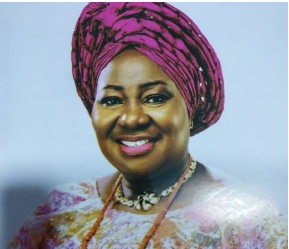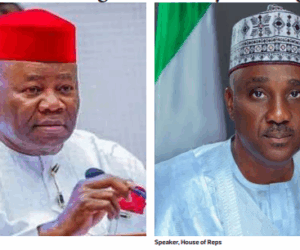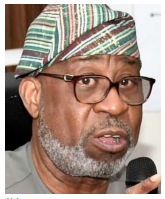1
In Nigeria’s complex political landscape, the presence of women in governance is slowly becoming more visible. From ministerial positions to legislative roles, and from campaign rallies to political commentaries, Nigerian women are stepping into spaces they were once excluded from. Yet, despite these strides, one must ask a critical question: is this rise in female political participation a sign of true transformation, or is it simply tokenism in a different form? We live in a country where symbolism is often mistaken for substance. The appointment or election of a few women into political office is frequently greeted with public praise and media celebration. Their presence is hailed as a sign of progress, as though visibility alone equates to influence. But what happens after the cameras are turned off ? Are these women given the power and space to contribute meaningfully, or are they simply there to satisfy an image of inclusivity?
For decades, Nigerian women have remained underrepresented in decision making roles. Even in 2023, women accounted for less than five per cent of elected positions across all levels of government. This statistic, though troubling, is a reflection of systemic barriers: deeply rooted patriarchy, lack of access to political funding, violent political structures, and party systems that rarely allow women to thrive. Those who manage to climb the ladder often find themselves tokenized, invited to the table but not offered a voice. They are expected to play safe, to remain loyal, and to avoid shaking existing structures. This, unfortunately, reduces their roles to ceremonial, rather than strategic. In such cases, their gender is used to validate the credibility of a system that still refuses to accommodate them genuinely.
True transformation, however, goes beyond numbers. It is about the nature of participation. It is about influence not just presence. It is when women are empowered to shape policies, challenge norms, and introduce new perspectives to governance. Transformation is when we begin to see women contesting and winning governorship elections, leading economic recovery committees, and being active in conversations around national security, not just “soft” sectors like education or women affairs. To achieve this, we need more than token gestures. We need political parties that are deliberate about promoting women not as placeholders, but as partners. We need campaign systems that protect women from intimidation and provide equal funding opportunities. And we need a shift in societal perception, where a woman’s ambition is no longer seen as arrogance or rebellion, but as her right.
Empowering women politically is not about ticking a diversity box; it is about strengthening democracy. A balanced government reflects all of its people. Nigeria cannot afford to silence half its population and expect holistic growth. This is the time to reimagine the political space a space where young girls can grow up believing that leadership is not limited by gender. Where women are not limited to the role of supporters or appointees, but can dream, plan, and win as full political actors. Tokenism offers appearance. Transformation demands depth. And Nigeria, if it is serious about progress, must choose the latter.
Agbaje-Atoyebi is a leadership coach, historian and writer








